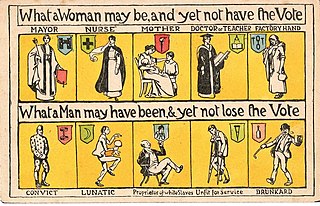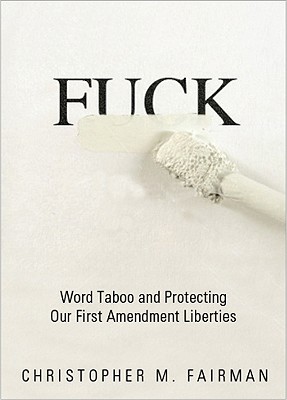Related Research Articles

Lunatic is a term referring to a person who is seen as mentally ill, dangerous, foolish, or crazy—conditions once attributed to "lunacy". The word derives from lunaticus meaning "of the moon" or "moonstruck".

The Jungle Book is an 1894 collection of stories by the English author Rudyard Kipling. Most of the characters are animals such as Shere Khan the tiger and Baloo the bear, though a principal character is the boy or "man-cub" Mowgli, who is raised in the jungle by wolves. Most stories are set in a forest in India; one place mentioned repeatedly is "Seeonee" (Seoni), in the central state of Madhya Pradesh.

The Home Office (HO), also known as the Home Department, is a ministerial department of the Government of the United Kingdom. It is responsible for immigration, security, and law and order. As such, it is responsible for policing in England and Wales, fire and rescue services in England, Border Force, visas and immigration, and the Security Service (MI5). It is also in charge of government policy on security-related issues such as drugs, counterterrorism, and immigration. It was formerly responsible for His Majesty's Prison Service and the National Probation Service, but these have been transferred to the Ministry of Justice.

The Police Service of Northern Ireland, is the police service responsible for law enforcement and the prevention of crime within Northern Ireland.

British Transport Police is a national special police force that polices the railway network of England, Wales and Scotland. The force polices more than 10,000 miles of track and more than 3,000 stations and depots.

The Road to Serfdom is a book by the Austrian-British economist and philosopher Friedrich Hayek. In the book, Hayek "[warns] of the danger of tyranny that inevitably results from government control of economic decision-making through central planning." He further argues that the abandonment of individualism and classical liberalism inevitably leads to a loss of freedom, the creation of an oppressive society, the tyranny of a dictator, and the serfdom of the individual. Hayek challenged the view, popular among British Marxists, that fascism was a capitalist reaction against socialism. He argued that fascism, Nazism, and state-socialism had common roots in central economic planning and empowering the state over the individual.

A bicycle helmet is a type of helmet designed to attenuate impacts to the head of a cyclist in collisions while minimizing side effects such as interference with peripheral vision.

The Madcap Laughs is the debut solo album by the English singer-songwriter Syd Barrett. It was recorded after Barrett had left Pink Floyd in April 1968. The album had a lengthy recording history, with work beginning in May 1968, but the bulk of the sessions taking place between April and July 1969, for which five different producers were credited − including Barrett, Peter Jenner, Malcolm Jones, and fellow Pink Floyd members David Gilmour and Roger Waters. Among the guest musicians are Willie Wilson from Gilmour's old band Jokers Wild and several members of Soft Machine.

The Office of Rail and Road (ORR) is a non-ministerial government department responsible for the economic and safety regulation of Britain's railways, and the economic monitoring of National Highways.

"Octopus" is a song by Syd Barrett. In January 1970 it appeared on his first solo album The Madcap Laughs.
David John Smail was a British clinical psychologist who was a proponent of a social materialist explanation of psychological distress.

Séamus Turlough McElwain was a volunteer in the South Fermanagh Brigade of the Provisional Irish Republican Army (IRA) during The Troubles, who was killed by British special forces while preparing to ambush an army patrol.
A toxic leader is a person who abuses the leader–follower relationship by leaving the group or organization in a worse condition than it was in. Toxic leaders therefore create an environment that may be detrimental to employees, thus lowering overall morale in the organization.

Timothy David Snyder is an American historian specializing in the history of Central and Eastern Europe, the Soviet Union, and the Holocaust. He is the Richard C. Levin Professor of History at Yale University and a permanent fellow at the Institute for Human Sciences in Vienna.

Philip King Howard is an American lawyer and writer. He has written on the effects of modern law and bureaucracy on human behavior and the workings of society. He started The Common Good, a nonpartisan, nonprofit organization which advocates simplifying government.

The Rail Safety and Standards Board (RSSB) is a British independent company limited by guarantee. Interested parties include various rail industry organisations, including Network Rail, train operating companies (TOCs), and rolling stock companies (ROSCOs). The RSSB operates as a not-for-profit entity, its primary purpose being to bring about improved health and safety performance throughout Britain's railway network.
PC David Copperfield is the pen name of Stuart Davidson, formerly of the Staffordshire Police, who is believed to have been the first police blogger. He later wrote a best-selling book about the British police service, Wasting Police Time, while serving as a police constable. He is now serving as a police officer in Canada.

John Ordronaux was an American Civil War army surgeon, a professor of medical jurisprudence, a pioneering mental health commissioner and a generous patron of university endowments. Between 1859 and 1901 Ordronaux published at least fifteen books and articles about subjects as diverse as heroes of the American Revolution of 1776, military medicine, medical jurisprudence, mental health, United States constitutional law and historical treatises. He left an estate worth $2,757,000 much of which he gave in endowments to several US universities and other institutions.
The following outline is provided as an overview of and topical guide to psychiatry:

Fuck: Word Taboo and Protecting Our First Amendment Liberties is a nonfiction book by law professor Christopher M. Fairman about freedom of speech, the First Amendment to the United States Constitution, censorship, and use of the word fuck in society. The book was first published in 2009 by Sphinx as a follow-up on the author's article "Fuck", published in 2007 in the Cardozo Law Review. It cites studies from academics in social science, psychoanalysis, and linguistics. Fairman establishes that most current usages of the word have connotations distinct from its meaning of sexual intercourse. The book discusses the efforts of conservatives in the United States to censor the word from common parlance. The author says that legal precedent regarding its use is unclear because of contradictory court decisions. Fairman argues that once citizens allow the government to restrict the use of specific words, this will infringe upon freedom of thought.
References
- Johnston, Phillip. Bad Laws: An Explosive Analysis of Britain's Petty Rules, Health and Safety Lunacies, and Madcap Laws. Constable. ISBN 9781849014304. 2010. Google Books.
- Allfree, Claire. Bad Laws exposes the flaws that curtail individual freedom (Book review of "Bad Laws"). Metro. 6 April 2010.
- Wilson, Ben. Bad Laws: An Explosive Analysis of Britain's Petty Rules, Health and Safety Lunacies and Madcap Laws by Philip Johnston: review". The Telegraph. 13 April 2010. Also serialised in "Bad laws: Labour has clowned around with our freedom" and "How do we win back our freedom".
- Sutton, Henry. "Bad Laws by Philip Johnston" in The Ticket. April 2010 archives. The Mirror.
- Crawley, William. "A Summer of Books" in Will & Testament. BBC. 1 August 2010.
- ↑ Foster, Charles. "Britain--the over-governed society" (Book review of Bad Laws). Contemporary Review. 22 December 2010. Highbeam Research The Free Library Bibliography of Foster's articles Archived 2015-04-19 at the Wayback Machine .
- ↑ Appleton, Josie. Send in the Clown's: Britain's Bizarre New Laws. Spiked. December 2010.